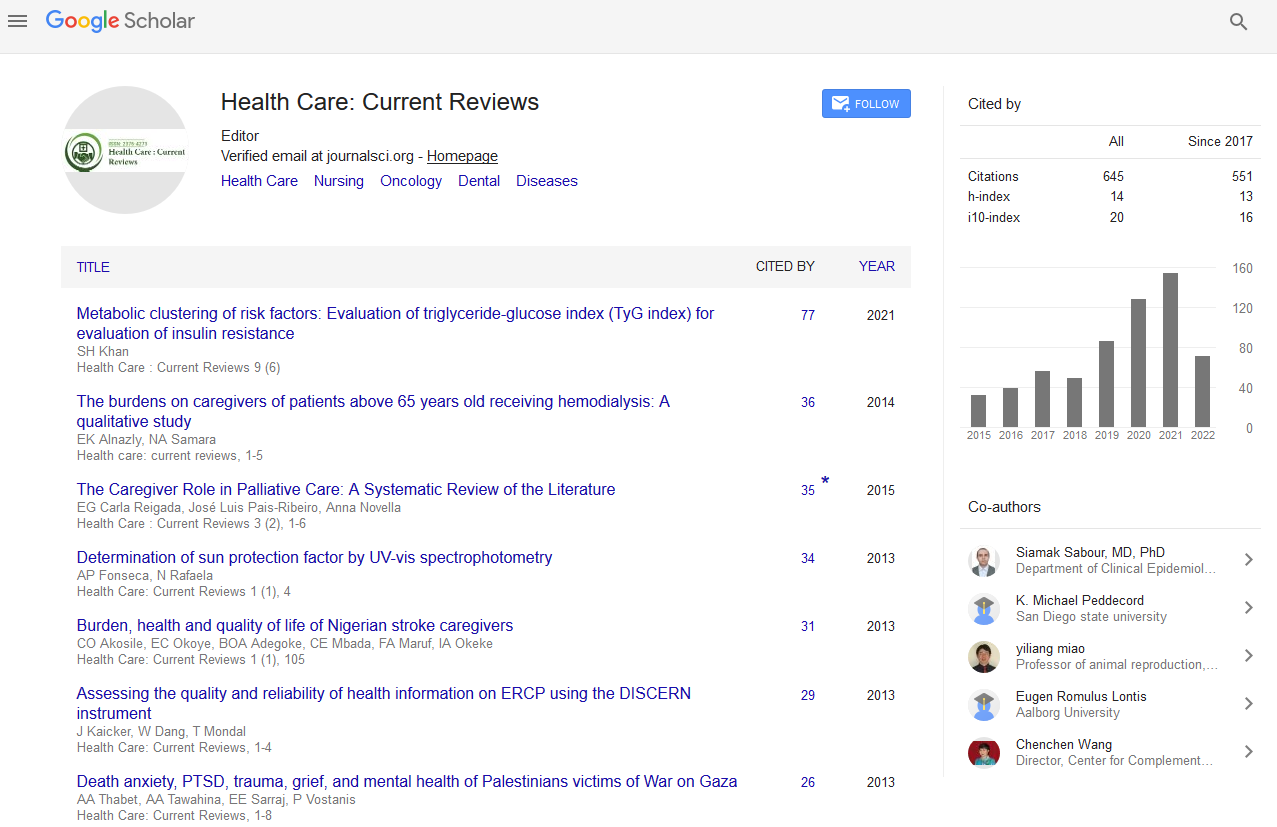PMC/PubMed Indexed Articles
Indexed In
- Open J Gate
- Academic Keys
- RefSeek
- Hamdard University
- EBSCO A-Z
- Publons
- Geneva Foundation for Medical Education and Research
- Google Scholar
Useful Links
Share This Page
Journal Flyer

Open Access Journals
- Agri and Aquaculture
- Biochemistry
- Bioinformatics & Systems Biology
- Business & Management
- Chemistry
- Clinical Sciences
- Engineering
- Food & Nutrition
- General Science
- Genetics & Molecular Biology
- Immunology & Microbiology
- Medical Sciences
- Neuroscience & Psychology
- Nursing & Health Care
- Pharmaceutical Sciences
Xerente people: Observing on hypertension and health care
2nd Annual Congress and Medicare Expo on Primary Care & General Pediatrics
September 19-20, 2016 Phoenix, USA
Luciana Merley Belmiro de Assis Borborema and Nayane Souza Santos
Federal University of Tocantins, Brazil
Posters & Accepted Abstracts: Health Care: Current Reviews
Abstract:
Aim: This study is aimed to know how Xerente people understand systemic hypertension and health care. Method: Field research with qualitative measures, ethnographic approach, with 29 hypertensive indigenous Xerente was done. The data was based on Leininger analysis, it proposes the ethnographic method for nursing, which divides the analysis into four phases: First phase is to collect and documentation gathering of raw data; second phase is consisted in the study of data which observes similarities and differences in statements and behaviors; third is held and contextual analysis of patterns and; the fourth stage are the issues, findings and relevant theoretical formulations being analyzed and synthesized. Results: The power of indigenous people and their eating habits have undergone through changes over the years due to the contact with the city. The indigenous Xerente population does not perform any type of physical exercise in the villages. Much of the interviewees claim that they use the medicine prescribed by the doctor and also make use of plants as medicine. Conclusion: The indigenous hypertensive recognizes the process of being ill in their body, however, the health care for the same needs should be related to their way of life at the village. It is concluded that the provision in health care is necessary in a way that meets the needs of indigenous in respect to their cultural values, through the inclusion of indigenous services and conducting health education activities. The training of professionals working with indigenous health is critical.
Biography :
Luciana Merley Belmiro de Assis Borborema 35 years old, married , graduated in Nursing from the Federal University of Minas Gerais - Brazil in 2004 and graduated in post Trauma , Emergency and Intensive Care , Faculty of Medical Sciences of Minas Gerais - Brazil in 2009. He has worked professionally as nurse of the Family Health Strategy for 4 years as technical advice from primary care for 2 years and as Nurse Labor for 1 year. Currently it is Superior Teaching of Nursing professor at the Federal University of Tocantins - Brazil.


